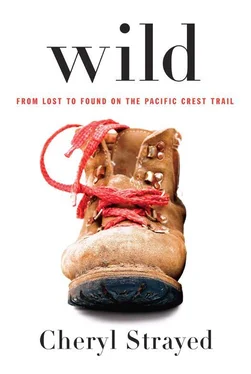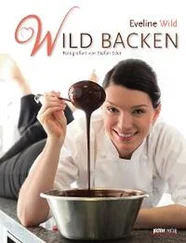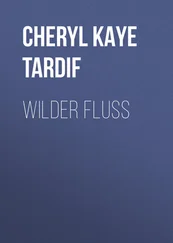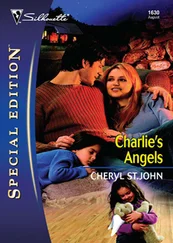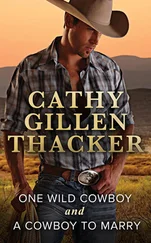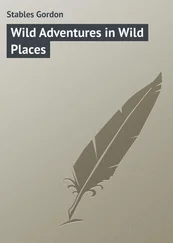Cheryl Strayed - Wild
Здесь есть возможность читать онлайн «Cheryl Strayed - Wild» весь текст электронной книги совершенно бесплатно (целиком полную версию без сокращений). В некоторых случаях можно слушать аудио, скачать через торрент в формате fb2 и присутствует краткое содержание. Год выпуска: 2012, ISBN: 2012, Жанр: Современная проза, на английском языке. Описание произведения, (предисловие) а так же отзывы посетителей доступны на портале библиотеки ЛибКат.
- Название:Wild
- Автор:
- Жанр:
- Год:2012
- ISBN:978-0-307-95765-8
- Рейтинг книги:4 / 5. Голосов: 1
-
Избранное:Добавить в избранное
- Отзывы:
-
Ваша оценка:
- 80
- 1
- 2
- 3
- 4
- 5
Wild: краткое содержание, описание и аннотация
Предлагаем к чтению аннотацию, описание, краткое содержание или предисловие (зависит от того, что написал сам автор книги «Wild»). Если вы не нашли необходимую информацию о книге — напишите в комментариях, мы постараемся отыскать её.
Wild — читать онлайн бесплатно полную книгу (весь текст) целиком
Ниже представлен текст книги, разбитый по страницам. Система сохранения места последней прочитанной страницы, позволяет с удобством читать онлайн бесплатно книгу «Wild», без необходимости каждый раз заново искать на чём Вы остановились. Поставьте закладку, и сможете в любой момент перейти на страницу, на которой закончили чтение.
Интервал:
Закладка:
“Look both ways,” she’d call after us as we fled like a pack of hungry dogs.
When she met Eddie, she didn’t think it would work because he was eight years younger than she, but they fell in love anyway. Karen and Leif and I fell in love with him too. He was twenty-five when we met him and twenty-seven when he married our mother and promised to be our father; a carpenter who could make and fix anything. We left the apartment complexes with fancy names and moved with him into a rented ramshackle farmhouse that had a dirt floor in the basement and four different colors of paint on the outside. The winter after my mother married him, Eddie fell off a roof on the job and broke his back. A year later, he and my mom took the twelve-thousand-dollar settlement he received and with it bought forty acres of land in Aitkin County, an hour and a half west of Duluth, paying for it outright in cash.
There was no house. No one had ever had a house on that land. Our forty acres were a perfect square of trees and bushes and weedy grasses, swampy ponds and bogs clotted with cattails. There was nothing to differentiate it from the trees and bushes and grasses and ponds and bogs that surrounded it in every direction for miles. Together we repeatedly walked the perimeter of our land in those first months as landowners, pushing our way through the wilderness on the two sides that didn’t border the road, as if to walk it would seal it off from the rest of the world, make it ours. And, slowly, it did. Trees that had once looked like any other to me became as recognizable as the faces of old friends in a crowd, their branches gesturing with sudden meaning, their leaves beckoning like identifiable hands. Clumps of grass and the edges of the now-familiar bog became landmarks, guides, indecipherable to everyone but us.
We called it “up north” while we were still living in the town an hour outside of Minneapolis. For six months, we went up north only on weekends, working furiously to tame a patch of the land and build a one-room tarpaper shack where the five of us could sleep. In early June, when I was thirteen, we moved up north for good. Or rather, my mother, Leif, Karen, and I did, along with our two horses, our cats and our dogs, and a box of ten baby chicks my mom got for free at the feed store for buying twenty-five pounds of chicken feed. Eddie would continue driving up on weekends throughout the summer and then stay come fall. His back had healed enough that he could finally work again, and he’d secured a job as a carpenter during the busy season that was too lucrative to pass up.
KarenCherylLeif were alone with our mother again — just as we’d been during the years that she’d been single. Waking or sleeping that summer, we were scarcely out of one another’s sight and seldom saw anyone else. We were twenty miles away from two small towns in opposite directions: Moose Lake to the east; McGregor to the northwest. In the fall we’d attend school in McGregor, the smaller of the two, with a population of four hundred, but all summer long, aside from the occasional visitor — far-flung neighbors who stopped by to introduce themselves — it was us and our mom. We fought and talked and made up jokes and diversions in order to pass the time.
Who am I? we’d ask one another over and over again, playing a game in which the person who was “it” had to think of someone, famous or not, and the others would guess who it was based on an infinite number of yes or no questions: Are you a man? Are you American? Are you dead? Are you Charles Manson?
We played it while planting and maintaining a garden that would sustain us through the winter in soil that had been left to its own devices throughout millennia, and while making steady progress on the construction of the house we were building on the other side of our property and hoped to complete by summer’s end. We were swarmed by mosquitoes as we worked, but my mother forbade us to use DEET or any other such brain-destroying, earth-polluting, future-progeny-harming chemical. Instead, she instructed us to slather our bodies with pennyroyal or peppermint oil. In the evenings, we would make a game of counting the bites on our bodies by candlelight. The numbers would be seventy-nine, eighty-six, one hundred and three.
“You’ll thank me for this someday,” my mother always said when my siblings and I complained about all the things we no longer had. We’d never lived in luxury or even like those in the middle class, but we had lived among the comforts of the modern age. There had always been a television in our house, not to mention a flushable toilet and a tap where you could get yourself a glass of water. In our new life as pioneers, even meeting the simplest needs often involved a grueling litany of tasks, rigorous and full of boondoggle. Our kitchen was a Coleman camp stove, a fire ring, an old-fashioned icebox Eddie built that depended on actual ice to keep things even mildly cool, a detached sink propped against an outside wall of the shack, and a bucket of water with a lid on it. Each component demanded just slightly less than it gave, needing to be tended and maintained, filled and unfilled, hauled and dumped, pumped and primed and stoked and monitored.
Karen and I shared a bed on a lofted platform built so close to the ceiling we could just barely sit up. Leif slept a few feet away on his own smaller platform, and our mother was in a bed on the floor below, joined by Eddie on the weekends. Every night we talked one another to sleep, slumber-party style. There was a skylight window in the ceiling that ran the length of the platform bed I shared with Karen, its transparent pane only a few feet from our faces. Each night the black sky and the bright stars were my stunning companions; occasionally I’d see their beauty and solemnity so plainly that I’d realize in a piercing way that my mother was right. That someday I would be grateful and that in fact I was grateful now, that I felt something growing in me that was strong and real.
It was the thing that had grown in me that I’d remember years later, when my life became unmoored by sorrow. The thing that would make me believe that hiking the Pacific Crest Trail was my way back to the person I used to be.
On Halloween night we moved into the house we’d built out of trees and scrap wood. It didn’t have electricity or running water or a phone or an indoor toilet or even a single room with a door. All through my teen years, Eddie and my mom kept building it, adding on, making it better. My mother planted a garden and canned and pickled and froze vegetables in the fall. She tapped the trees and made maple syrup, baked bread and carded wool, and made her own fabric dyes out of dandelions and broccoli leaves.
I grew up and left home for college in the Twin Cities at a school called St. Thomas, but not without my mom. My acceptance letter mentioned that parents of students could take classes at St. Thomas for free. Much as she liked her life as a modern pioneer, my mother had always wanted to get her degree. We laughed about it together, then pondered it in private. She was forty, too old for college now, my mother said when we discussed it, and I couldn’t disagree. Plus, St. Thomas was a three-hour drive away. We kept talking and talking until at last we had a deal: she would go to St. Thomas but we would have separate lives, dictated by me. I would live in the dorm and she would drive back and forth. If our paths crossed on campus she would not acknowledge me unless I acknowledged her first.
“All this is probably for nothing,” she said once we’d hatched the plan. “Most likely I’ll flunk out anyway.” To prepare, she shadowed me during the last months of my senior year of high school, doing all the homework that I was assigned, honing her skills. She replicated my worksheets, wrote the same papers I had to write, read every one of the books. I graded her work, using my teacher’s marks as a guide. I judged her a shaky student at best.
Читать дальшеИнтервал:
Закладка:
Похожие книги на «Wild»
Представляем Вашему вниманию похожие книги на «Wild» списком для выбора. Мы отобрали схожую по названию и смыслу литературу в надежде предоставить читателям больше вариантов отыскать новые, интересные, ещё непрочитанные произведения.
Обсуждение, отзывы о книге «Wild» и просто собственные мнения читателей. Оставьте ваши комментарии, напишите, что Вы думаете о произведении, его смысле или главных героях. Укажите что конкретно понравилось, а что нет, и почему Вы так считаете.
